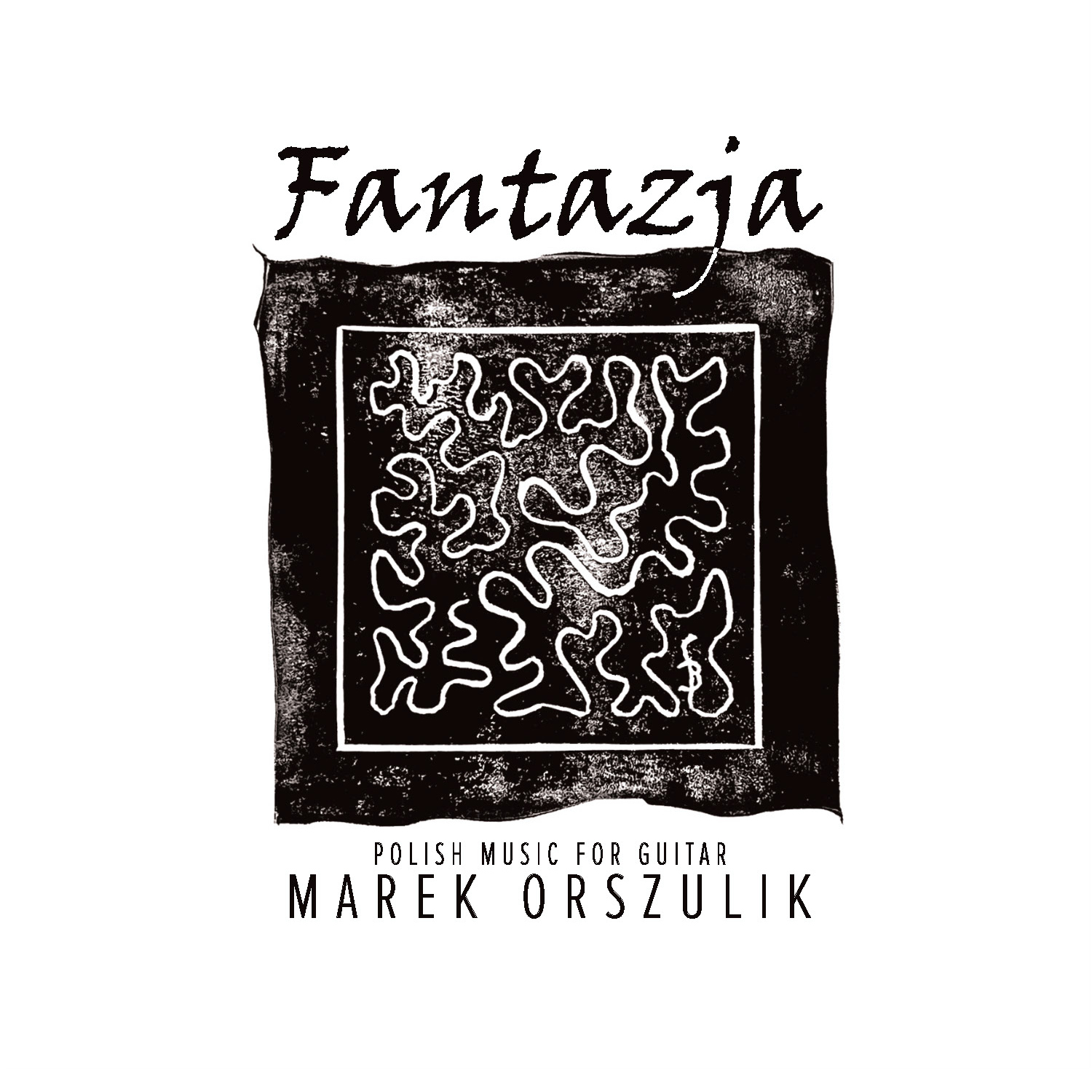Recorded at Holy Trinity Anglican Church, Edmonton, AB.
This recording presents an array of music for classical guitar from Polish composers, spanning from the Renaissance to the present day. Despite not being known as a major centre for guitar activity, Poland in the nineteenth century saw a handful of virtuoso players intent on expanding the repertoire through their own compositions and arrangements of popular melodies. Interest in composing for the guitar has increased among non-guitarist composers through the twentieth and twenty-first centuries, and including lute repertoire expands the possibilities further still. The title for this collection, Fantazja, reflects the improvisatory nature of many of the works presented here.
Adalbert (or Wojciech) Długoraj (c. 1550–1619) served as court lutenist to the Polish military leader, Samuel Zborowski. Such was the cruelty of his master, that the composer was forced to flee to Germany for his safety, living out his final years abroad. The Fantasie and Finale presented here demonstrate Długoraj’s fine sense of form within a skillfully crafted exploratory style.
Another court lutenist, Jakub Reys (or Polak) (c. 1540–1605) served Henry III of Poland. When the King left Poland for Paris, the composer followed him and continued to serve. His considerable output for lute contains an abundance of freely constructed shorter preludes and longer fantasies, as well as a handful of delightful dance movements. The Courante II and Fantazja XV are among the most directly transferable to the guitar from the wealth of his lute output.
The first guitarists-composers in Poland emerged in the nineteenth century, building on the popularity of Sor and Giuliani elsewhere in Europe. Both Stanisław Szczepanowski (1812–1877) and Feliks Horecki (1796–1870) were students of Giuliani and their compositions owe a great deal to his inspiration. Unfortunately, only a single original guitar work of Szczepanowski survived, despite a considerable amount of music being reported. The Introduction et Variations Brillantes sur un Air National takes the Polish national anthem as the theme, transforming it through varying moods from sombre to exuberant. Horetzky (as he would more commonly become known) is remembered mainly for his many short instructional works. His handful of virtuoso concert showpieces are infrequently performed, but the Fantasie presented here displays their fine quality.
The twentieth century saw a growing interest in the guitar among composers who themselves were not trained on the instrument. Throughout Józef Świder’s (1930–2014) long career, he returned to the guitar sporadically in a number of chamber works. The Meditazioni is a late work and one of only two solo contributions (in addition to the earlier Taniec Fantastyczny). Currently unpublished, it received its premiere in Cieszyn by Jan Oberbek on the 24th of October, 2003. I am grateful to the Józef Świder Foundation for permission to include the piece here.
The onset of World War II of course led to the dispersal of Polish people, many of whom chose not to return. The Polish-Jewish composer Roman Ryterband (1914–1979), originally from Łódź, was on tour in Europe at the outbreak and was able to live out the war years in Switzerland, studying composition and musicology. Tragically, he was the only member of his immediate family to survive the conflict. In the 1950s he relocated to Montreal, Canada, and then to various locations in the USA, holding several conducting and teaching posts. His Sonatina, written for the guitarist Byron Tomingas, is representative of the composer’s neoclassical style. As this was one of his final works, he never heard a performance before he died.
A number of festivals keep interest in the guitar alive and active in Poland. Several adventurous works have arisen from the Tychy Guitar Festival, which ran a prestigious composition competition for some years. Among the prizewinning pieces from the 1997 event is the Fantazja by Olga Hans (b. 1971). From a simple four-note motif centred around E, the composer explores various textures and guitar-specific playing techniques, making full use of the instrument\'s sonic potential.
Mikołaj Piotr Górecki (b. 1971) was drawn to music from an early age, always preferring the creative process to mastering an instrument. He studied composition at the Music Academy in Katowice, later completing a doctorate at Indiana University, Bloomington. Mesto I and II, written in 2018, are the most recent works included in this album. These two movements display the composer’s emotionally charged style in a very compact format.
This project was supported by the Alberta Foundation for the Arts, Edmonton Arts Council, and the Wirth Institute for Austrian and Central European Studies (University of Alberta).
Thanks to:
Dr Alexander Carpenter, Sylwia Chrobak, Etelka Nyilasi, Andrzej Śniosek (Józef Świder Foundation), Angus Findlay, Olga Hans, Mikołaj Piotr Górecki, Barnaba Łyżbicki, Corey Haberstock, Diana Eisele, Frank Koonce, John Mahon, Bryan Saunders, Julian Bertino


 Amazon
Amazon